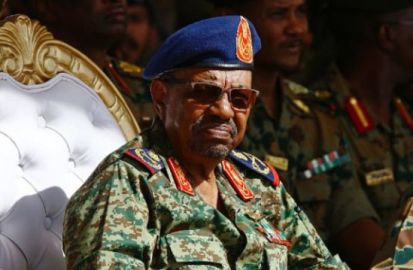Sudan’s president declares state of emergency in N. Kordofan and Kassala
December 30, 2017 (KHARTOUM) – The Sudanese President Omer al-Bashir on Saturday has issued a decree imposing a six-month state of emergency in North Kordofan and Kassala states.
 The state presidential minister Al-Rashid Haroun on Saturday handed over the presidential decree to the speaker of the parliament Ibrahim Ahmed Omer in preparation to deliberate on it Sunday.
The state presidential minister Al-Rashid Haroun on Saturday handed over the presidential decree to the speaker of the parliament Ibrahim Ahmed Omer in preparation to deliberate on it Sunday.
He told reporters the declaration of the state of emergency in North Kordofan was meant to support the disarmament campaign and the need to eradicate the outlaws.
On the other hand, Omer said the state of emergency in the eastern state of Kassala was prompted by security reasons pertaining to the collection of illicit arms as well as combating drugs and human trafficking.
Since August, the Sudanese authorities launched a campaign to collect illegal weapons. The campaign, which would be implemented across the country, began by disarming tribes and civilians in Kordofan and Darfur.
Last week, the Sudanese parliament spokesperson Abdel-Maged Haroun said the council of ministers will lodge a temporary presidential decree to impose the state of emergency in some states to back up collection of illicit weapons
He told reporters the leadership of the parliament discussed measures to establish an ad hoc committee to consider the temporary presidential decree which aims to accommodate the states that have not been included in the disarmament campaign.
Also, there were reports that the state of emergency will be imposed in some of the central states including the capital, Khartoum not for the purpose of supporting the disarmament campaign but to counter possible protests that could erupt against the tough economic measures in the 2018 budget that was deposited to the parliament last week.
However, the State Minister of Finance Abdel-Rahman Dirar said the declaration of the state of emergency has nothing to do with the possible protests against the new economic measures and the expected rise in commodity price.
It is noteworthy that demonstrations broke out in several Sudanese states in September 2013 following the government’s decision to lift fuel subsidies. Rights groups said that at least 200 people were killed but the government put the death toll at 85.
(ST)
